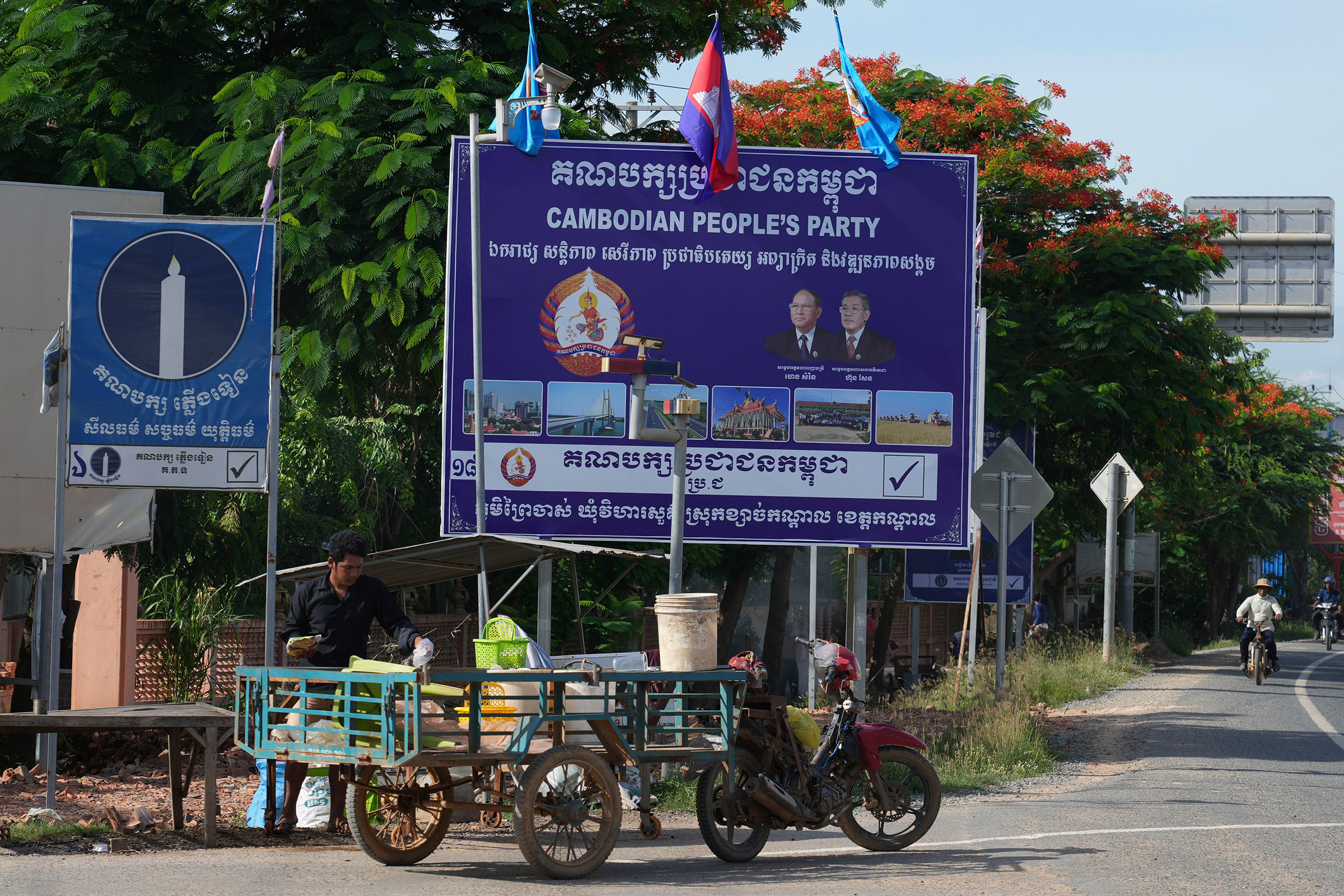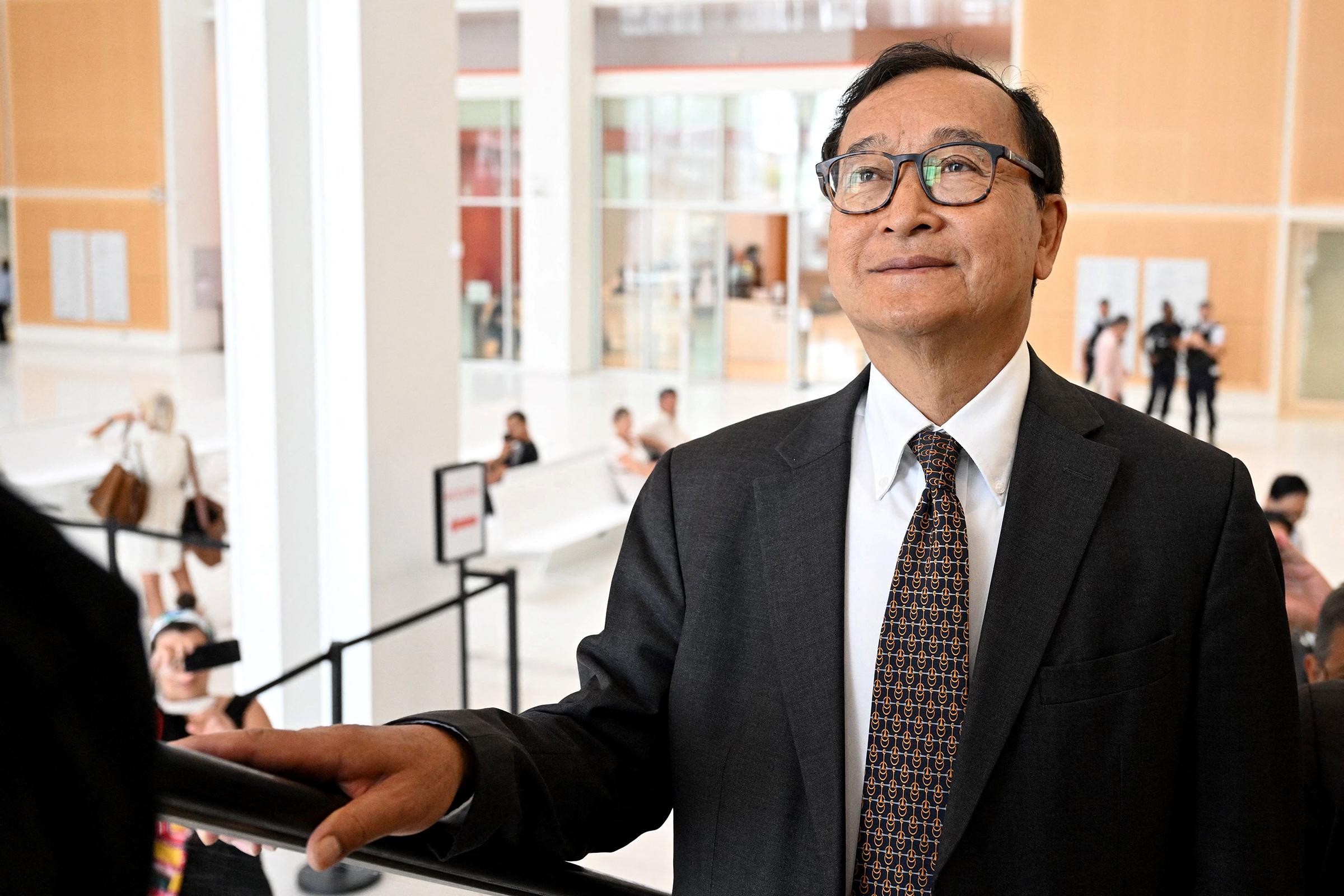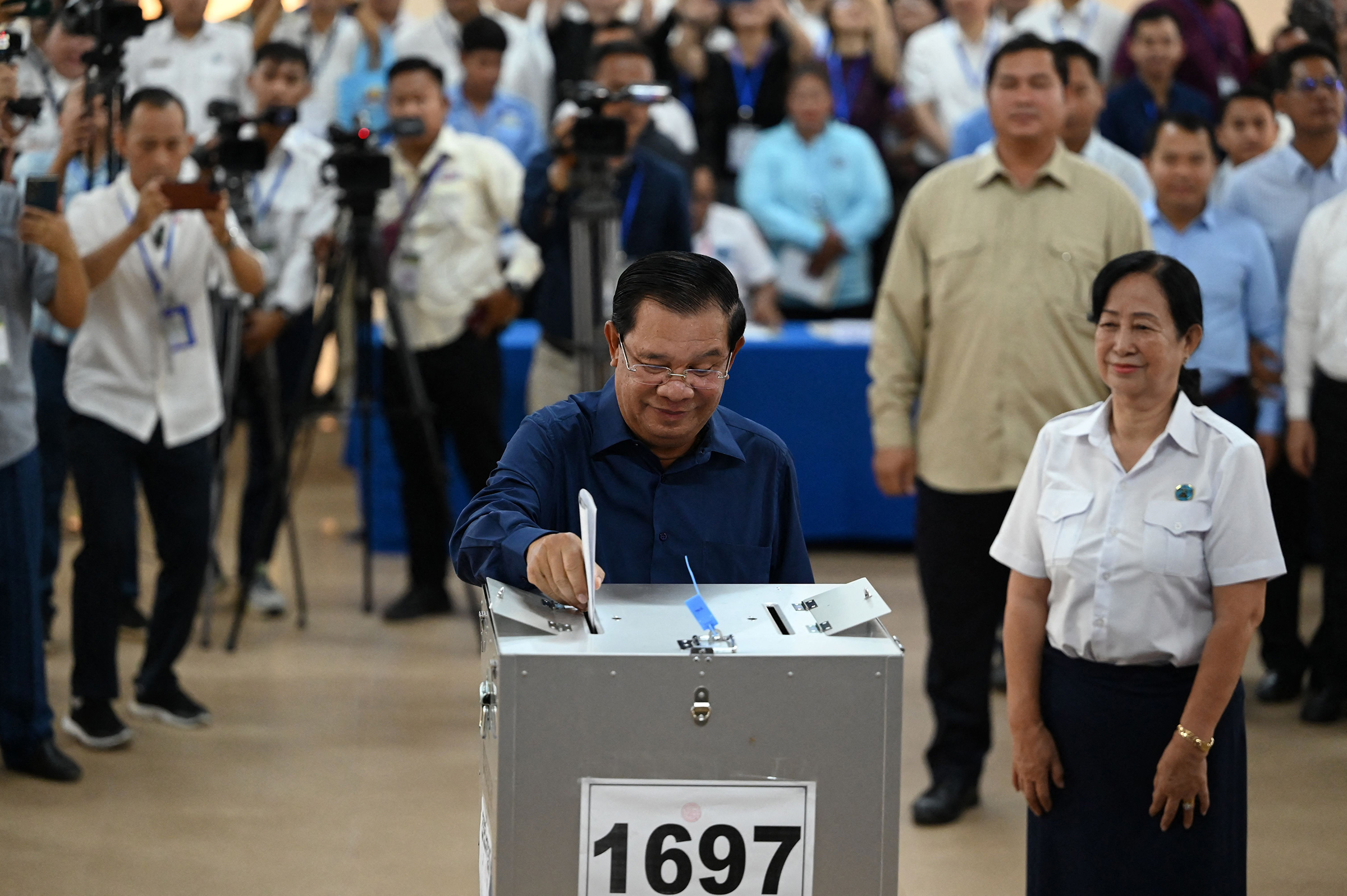On Wednesday, Cambodia’s longtime strongman Hun Sen formally announced that his son Hun Manet will take over as Prime Minister in a matter of weeks. The move comes just days after the world witnessed yet another wholly fraudulent election in Cambodia, a country that has effectively been ruled by one man since 1985. As leader of the country’s army, and a graduate of West Point, New York University, and the U.K.’s Bristol University, many hope that Cambodian democracy may be reborn with Hun Manet coming to power. But, make no mistake, just like with Syria’s Bashar al-Assad and North Korea’s Kim Jong-un, this will not be the case.
I know the nature of Cambodia’s regime all too well. As the interim leader of Cambodia National Rescue Party, I have spent the past seven years in exile because of my opposition to the regime. During this time, Hun Sen’s administration sentenced me to life in prison, and in May he publicly threatened to kill me if I return to my country. There is every reason to expect that Hun Manet will continue the style of rule of his 71-year-old father, who has spent decades grooming him to take over.

But I am just one of hundreds that Hun Sen has suppressed in one way or another. Candlelight, the only remaining credible opposition party in Cambodia, was barred in May from participating in Sunday’s fraudulent election on a bureaucratic technicality. This year, its members have reported being attacked in the street by masked men. Political dissidents of all kinds have been targeted for arrest, imprisonment, and even assassination. There has also been a systematic assault on the country’s free press, with popular newspapers—including Cambodia Daily, Voice of Democracy, and The Phnom Penh Post—either closed or subject to hostile takeovers by those allied with Hun Sen.
More From TIME
The ruling government’s campaign to obstruct free expression also extends to social media. Last month, Hun Sen deleted his Facebook account, following a ruling by Meta’s Oversight Board that he should face a six-month ban from the platform over a video post in which he yet again threatened to have opponents beaten. The Cambodian Ministry of Posts and Telecommunications announced in response that all members of the Oversight Board were barred from entering the country. Hun Sen then threatened to block Facebook entirely for the election period, potentially depriving citizens access to a forum that is free of government censorship. This, ultimately, did not happen, but Hun Sen was explicit in his desired aims: to prevent contact between exiled opposition leaders and citizens of the country.


Ahead of Sunday’s vote, we led a campaign for Cambodians to spoil their ballot papers, en masse, in protest of Hun Sen’s regime and the absence of an alternative political opposition. This was something that Hun Sen feared because it could cast doubt on his rigged public mandate. To mitigate against the impacts of such a move, he made spoiling a ballot a fineable offense of 20 million Cambodian riel ($4,848) and charged myself and others who advocated this hitherto lawful behavior with attempting to undermine the election process. He also ensured that polling booths were staffed only by members of his ruling Cambodian People’s Party, thus adding a further layer of intimidation. And this was all after a widespread series of arbitrary arrests, focusing on local Candlelight leaders, including youth and women’s wings.
The international community must back the democrats of Cambodia. The 1991 Paris Peace Agreements, signed by 19 countries including the U.S., laid out a process for building a free and democratic Cambodia. But the international community has reneged on that promise.

Hun Sen should be an international pariah but the international community continues to work with him. He was chair of the ASEAN summit in 2022 for the third time. In this capacity, he was also invited to co-chair the E.U.-ASEAN summit, further lending his regime the legitimacy of the West. The E.U. in 2020 withdrew some of Cambodia's tariff-free benefits on human rights grounds. But given the blatant breach of international obligations, restriction of these special privileges ought to be significantly increased, and high-ranking officials involved in rights violations should be targeted with sanctions.
We fear that, despite talk of monitoring Hun Sen’s disregard for human rights, many democratic leaders, particularly in the West, will ultimately give him the international legitimacy he needs to complete the dynastic transition to his son. Doing so would come at the cost of both encouraging dictators worldwide and failing the Cambodian people and the international legal order once again. This cannot happen.
More Must-Reads from TIME
- Cybersecurity Experts Are Sounding the Alarm on DOGE
- Meet the 2025 Women of the Year
- The Harsh Truth About Disability Inclusion
- Why Do More Young Adults Have Cancer?
- Colman Domingo Leads With Radical Love
- How to Get Better at Doing Things Alone
- Michelle Zauner Stares Down the Darkness
Contact us at letters@time.com
